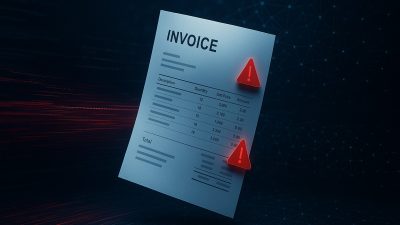The financial landscape is undergoing a seismic shift, driven by the relentless advancement of artificial intelligence. While AI has been instrumental in automating various aspects of trading and investment analysis, a more radical transformation is now underway: the emergence of “Robo-CEOs” – AI systems designed to manage entire hedge funds, from strategic decision-making to portfolio allocation and risk management.
The Rise of Algorithmic Leadership
For decades, hedge funds have relied on the expertise and intuition of human managers. These individuals, often highly compensated and possessing deep market knowledge, have been the driving force behind investment strategies. However, the sheer volume of data and the increasing complexity of financial markets are pushing the limits of human capabilities. This is where AI steps in, offering a scalable and data-driven approach to fund management.
Robo-CEOs are built upon sophisticated algorithms that analyze vast datasets, identify patterns, and make predictions with speed and accuracy that surpasses human analysts. These systems can process information from multiple sources, including market data, news feeds, and economic indicators, to make informed investment decisions. The promise is alluring: higher returns, lower costs, and reduced emotional bias in investment strategies.
Key Advantages of AI-Managed Funds
The potential benefits of employing AI as a Robo-CEO are numerous. Firstly, AI systems can operate 24/7, continuously monitoring markets and adjusting portfolios in real-time. This responsiveness is crucial in today’s volatile financial environment. Secondly, AI eliminates the emotional biases that often cloud human judgment. Fear and greed can lead to irrational investment decisions, which AI avoids by adhering strictly to its programmed algorithms.
Furthermore, AI offers significant cost advantages. By automating many of the tasks traditionally performed by human analysts, hedge funds can reduce their operating expenses and pass those savings on to investors. Finally, AI can personalize investment strategies to a degree that is simply not feasible with human managers. By analyzing individual investor profiles and risk tolerances, AI can tailor portfolios to meet specific needs and goals. AI-driven portfolio optimization is becoming a key differentiator.
Challenges and Ethical Considerations
Despite the potential advantages, the adoption of Robo-CEOs also presents significant challenges and ethical concerns. One of the primary concerns is the lack of transparency and explainability in AI decision-making. These “black box” algorithms can be difficult to understand, making it challenging to identify the rationale behind investment decisions. This lack of transparency can erode investor trust and make it difficult to hold AI systems accountable for their actions.
Another concern is the potential for systemic risk. If multiple hedge funds rely on similar AI algorithms, they could all make the same investment decisions at the same time, leading to market instability. This “herding” behavior could amplify market fluctuations and increase the risk of financial crises. Ethical concerns of AI-managed funds are paramount.
The question of accountability is also a major concern. Who is responsible when an AI-managed fund makes a mistake? Is it the programmer who wrote the algorithm, the hedge fund that employed the AI, or the AI system itself? These are complex legal and ethical questions that need to be addressed before Robo-CEOs become widespread.
The Future of AI in Hedge Fund Management
The use of AI in hedge fund management is still in its early stages, but its potential is undeniable. As AI technology continues to evolve, we can expect to see even more sophisticated Robo-CEOs emerge, capable of managing increasingly complex investment strategies. How AI is changing the hedge fund industry is a question on everyone’s mind.
However, the transition to AI-managed funds will not be without its challenges. Hedge funds need to carefully evaluate the risks and benefits of adopting AI, and they need to ensure that they have the necessary expertise to manage and oversee these systems. Regulators also need to develop appropriate frameworks to address the unique challenges posed by AI in finance. Regulation of AI in finance is crucial for responsible innovation.
Ultimately, the success of Robo-CEOs will depend on their ability to deliver superior investment performance while maintaining transparency, accountability, and ethical standards. If these challenges can be overcome, AI has the potential to revolutionize the hedge fund industry and create a more efficient and accessible financial system. The debate continues: Robo-CEO vs human hedge fund manager.
AI’s Role in Risk Management
Beyond simply selecting investments, AI excels at managing risk. Traditional methods often rely on historical data and static models, which can fail to capture the nuances of rapidly changing market conditions. AI, on the other hand, can continuously learn and adapt to new information, allowing it to identify and mitigate risks more effectively. AI-based risk management in hedge funds is a significant advantage.
The Human-AI Partnership
It’s important to note that the future of hedge fund management is unlikely to be entirely dominated by AI. Instead, a more likely scenario is a partnership between humans and AI, where humans provide strategic oversight and ethical guidance, while AI handles the data analysis and execution. This collaborative approach can leverage the strengths of both humans and machines, leading to better investment outcomes.
The Talent Shift in Finance
The rise of Robo-CEOs is also driving a shift in the skills needed in the finance industry. As AI takes over more routine tasks, the demand for data scientists, machine learning engineers, and AI specialists will increase. Finance professionals will need to develop new skills in areas such as data analysis, algorithm design, and AI ethics to remain competitive in the evolving job market. Future of AI in financial management depends on skilled talent.








